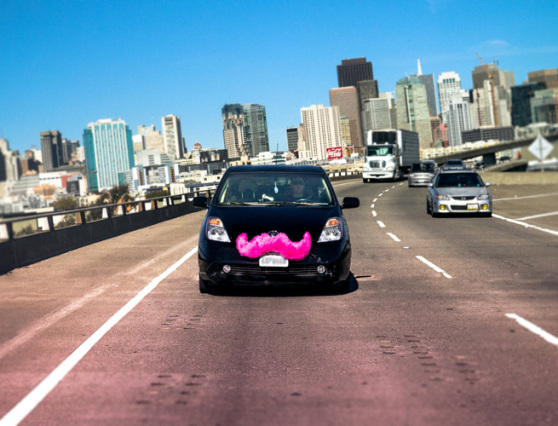Lyft is putting its new $60 million funding to work to fuel expansion around the nation.
Today the ridesharing startup known for its pink-mustachioed cars announced that it is launching in three new cities. Lyft will now be available in Indianapolis, St. Paul, and Atlanta. This is a milestone for Lyft, which typically launches in one city at a time.
Lyft completed its one millionth ride earlier this month. It completed the sizable $60 million round of funding in May and has speedily been entering new markets. Lyft first launched in San Francisco and has since added Los Angeles, Seattle, Chicago, Boston, San Diego, and Washington D.C. Today’s launches bring its total cities to 10.
“14 months ago, we had no product and no community, and we are really excited about what has happened since,” said founder John Zimmer in an interview at Lyft’s offices. “People are feeling a sense of community in their cities again. The 90s were about getting people online, the 00s were about connecting people online, and this decade is about connecting people offline in a safe and meaningful way, which is what Lyft represents.”
Lyft’s tagline is “your friend with a car.” It operates a peer-to-peer alternative to taxi cabs. You order a ride through an iPhone or Android application, and the driver will pick you up at your location and squire you to your destination. You will probably fist bump the driver and chat along the way.
Ridesharing has been a controversial topic this year. As companies like Lyft and SideCar gained passengers, drivers, and national attention, cab drivers began protesting that peer-to-peer taxis are unlawful and unsafe. Taxi drivers have to be licensed and commercially insured, and their vehicles are regularly inspected. They argued that regular people who have time and a vehicle are not qualified to drive passengers for hire. Many municipal governments agreed, and Lyft, SideCar, Uber, etc. have fought repeated battles around the country to stay in existence.
The California Public Utilities Commission formed a commission in December to reexamine its policies and came out with a proposed decision about ridesharing. It created a new category called “Transportation Network Company” and set out specific requirements. Ridesharing companies must require criminal background checks, establish a driver training program, implement a zero-tolerance policy on drugs and alcohol, and adopt a more stringent insurance policy.
This decision was a big win for ridesharing, although every market seems to present fresh regulatory challenges. This initial acceptance could set a precedent for other markets. Along with the $60 million from influential investors, Lyft’s momentum is strong, and its growth rate will likely continue at a steep incline.
The market for taxi apps and alternatives is getting increasingly competitive. Lyft competes with SideCar, as well as RelayRides, InstaCab, FlyWheel, Hailo, and of course, Uber, which last week confirmed a whopping $258 million round of funding, valuing the company at $3.5 billion. Uber has expanded its on-demand luxury car service to include taxis and lower-end cars, and earlier this year it announced that it would add ridesharing to its suite of options.
Zimmer said that Lyft’s plan is to spread across the country, and eventually the world, by the end of next year. It is ambitiously making its way in from the coasts, bringing Lyft to people outside of tech hubs and major cities.
Lyft is based in San Francisco and has raised a total of $85 million to date. Investors include Founders Fund, Andreessen Horowitz, Mayfield, and Floodgate.


